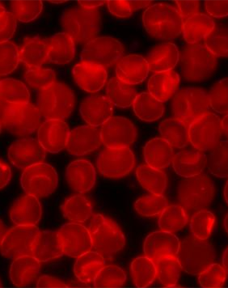Higher B6 Levels Linked With Lower Kidney Cancer Risk
Participants from two separate studies with higher levels of vitamin B6 were found to have a lower risk for renal cell carcinoma.
Higher vitamin B6 levels in the blood have been linked to a lower risk of RCC.

Participants from two separate studies with higher levels of vitamin B6 were found to have a lower risk for renal cell carcinoma (RCC). Increased levels of vitamin B6 were also linked with improved survival after an RCC diagnosis.
“Further elucidating the metabolic pathways underlying this relationship and the extent to which it can be influenced by changes in lifestyle may suggest preventive strategies for RCC and other cancers, as well as improved cancer survival,” wrote researchers led by Mattias Johansson, PhD, of the International Agency for Research on Cancer.
Because the etiology of RCC is not fully understood, Johansson and colleagues wanted to investigate whether concentrations of circulating B vitamins and amino acids in the one-carbon metabolism pathway were related to RCC incidence. They investigated 588 RCC case-control pairs from the European Prospective Investigation Into Cancer and Nutrition (EPIC) study. The researchers also conducted a replication study using 144 case-control pairs from the Melbourne Collaborative Cohort Study (MCCS). Plasma concentrations of vitamin B12, vitamin B6, folate, vitamin B2, methionine, and homocysteine were measured and correlated with risk of RCC. The results of their study were published in the Journal of the National Cancer Institute.
Among participants in the EPIC study, those with the higher plasma concentrations of B6 had a lower risk for RCC compared with participants with the lowest concentration of B6 (odds ratio [OR] = 0.40; 95% CI, 0.28-0.57). Looking at all-cause mortality, participants with the highest B6 concentrations also had improved survival compared with those with the lowest levels of B6 concentration (OR = 0.57; 95% CI, 0.37-0.87).
“Several established risk factors for RCC could theoretically explain the association of vitamin B6 concentrations with risk, including tobacco smoking and obesity related factors, but the OR estimates were at most marginally affected when adjusting for these factors,” the researchers wrote.
The researchers then repeated their analysis in the MCCS participants. Among this group, participants with the highest B6 concentrations also had lower risk for RCC (OR = 0.47; 95% CI, 0.23-0.99) and for all-cause mortality (HR = 0.56; 95% CI, 0.27-1.17) compared with those with the lowest B6 concentrations.
“While we mainly focused the survival analysis on all-cause mortality, an analysis of cause-specific mortality indicated that the association of B6 was driven by deaths caused by RCC,” the researchers wrote. “Indeed, no association between vitamin B6 and all-cause mortality was discernible in controls.”